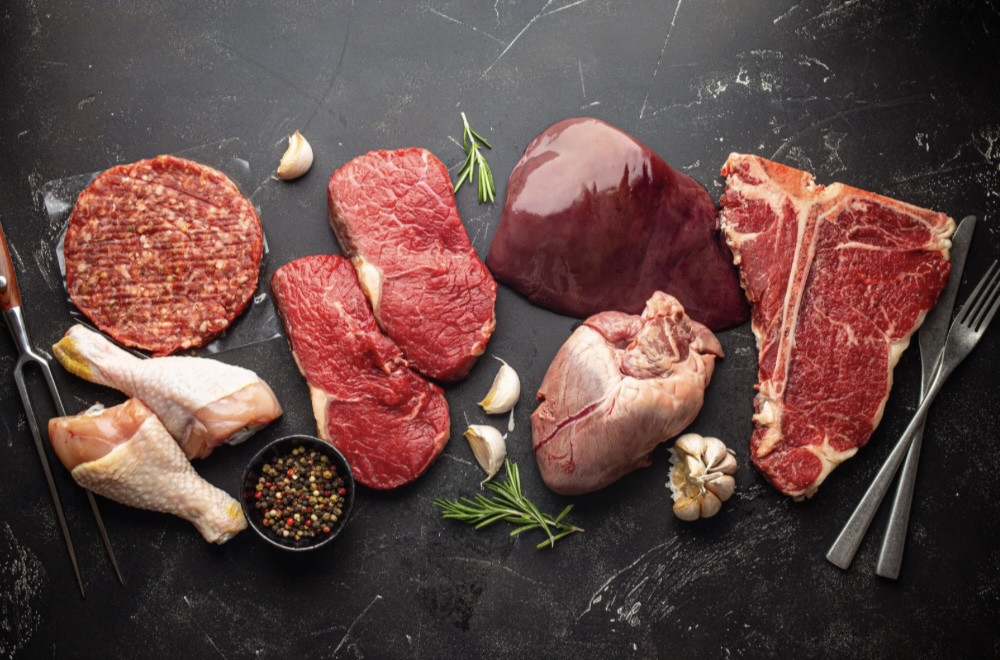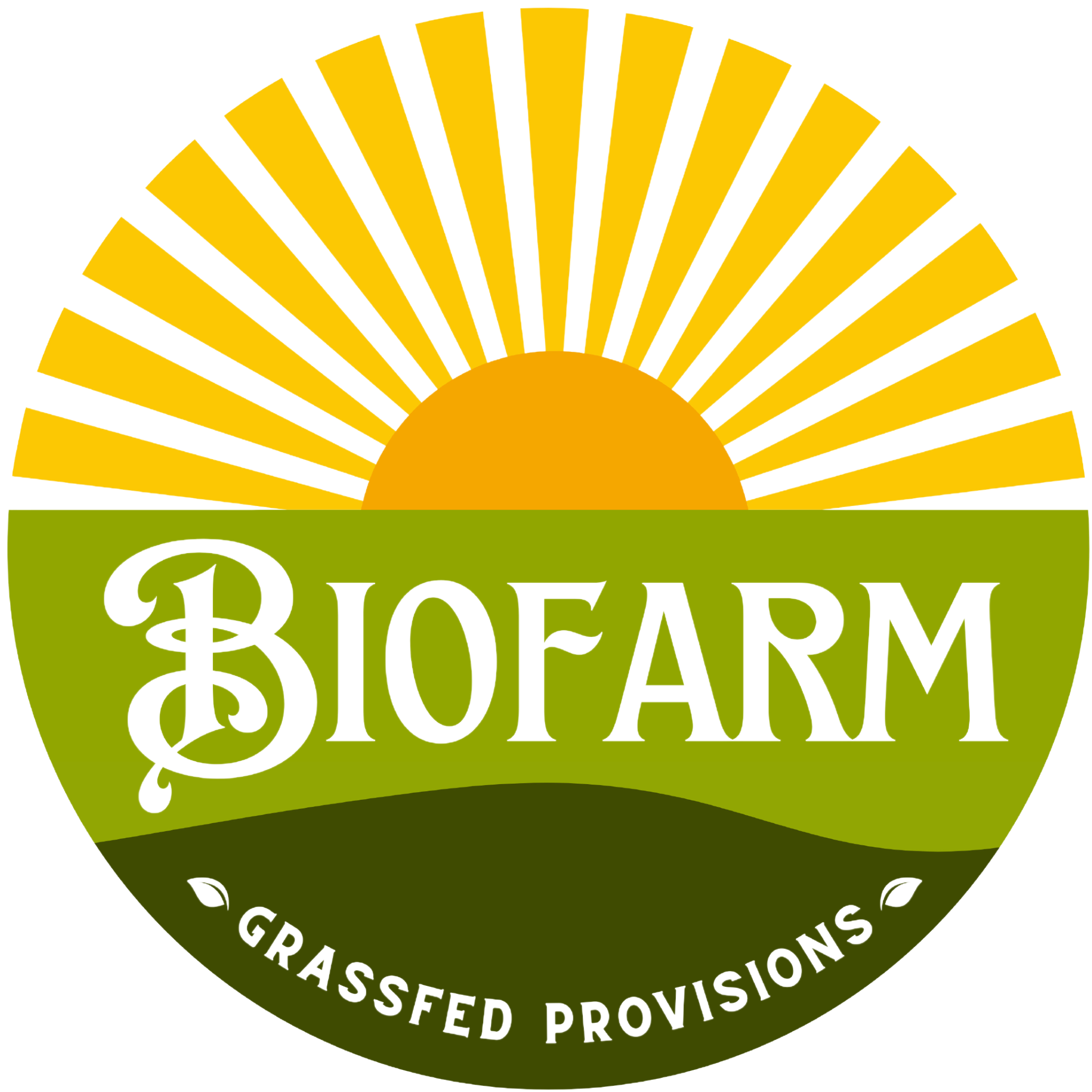What Exactly Does "Nutrient-Dense" Mean?
posted on
May 3, 2025

When we say a food is “nutrient-dense,” we’re talking about how many vitamins, minerals, antioxidants, healthy fats, and proteins are packed into each bite compared to the number of calories. Nutrient-dense foods give you more of the good stuff your body needs to thrive — without unnecessary additives or fillers.
At Bio Farm, we don’t just produce food — we raise it with intention. Our beef, poultry, dairy, eggs, and honey come from animals and land that are nurtured, not pushed to the limit. That makes a huge difference in how nourishing your food really is!
Our Nutrient-Rich Offerings (And Why They Matter)
Take a look at the key nutrients in each of our Bio Farm foods — and how they support your health:
🥩 Grassfed Beef
- Nutrients: Omega-3 fatty acids, Vitamin E, Vitamin B12, Iron, CLA (conjugated linoleic acid)
- Why it matters: Grassfed beef may contain up to 5x more omega-3s than grain-fed beef. CLA supports fat metabolism and immune function.
🐓 Pasture-Raised Poultry
- Nutrients: Vitamin D, B vitamins, zinc, selenium
- Why it matters: Chickens raised on pasture may have 3–4x more Vitamin D in their meat and eggs than those raised in confinement.
🥛 Raw Dairy
- Nutrients: Calcium, Vitamin K2, enzymes, probiotics, omega-3s
- Why it matters: Raw milk retains its natural enzymes and probiotics, which are often destroyed in pasteurization. It's also a great source of bioavailable calcium.
🥚 Pasture-Raised Eggs
- Nutrients: Vitamin A, Vitamin E, choline, omega-3s
- Why it matters: Eggs from pastured hens may have up to twice as much Vitamin E and omega-3s compared to conventional eggs.
🍯 Raw Local Honey
- Nutrients: Antioxidants, enzymes, trace minerals
- Why it matters: Unlike processed honey, raw honey keeps its natural antibacterial and immune-boosting properties. It also may help with seasonal allergies.
🐑 Pasture-Raised Lamb
- Nutrients: Iron, zinc, selenium, B12, omega-3s
- Why it matters: Lamb raised on pasture is not only more flavorful, but richer in essential trace minerals and healthy fats.
🫀 Organ Meats (Liver, Heart, etc.)
- Nutrients: Vitamin A, B12, folate, copper, iron
- Why it matters: Organ meats are some of the most nutrient-dense foods on the planet. Liver alone can supply over 100% of your daily needs for several key nutrients.
Why Today's Grocery Store Carrot Isn't Like Your Great-Grandmother’s
You may have heard that food isn't as nutritious as it used to be — and it's true. Studies show that produce today contains significantly fewer nutrients than it did just 50–100 years ago. Here's why:
🌾 What Changed After the Industrial Revolution?
- Soil depletion: Intensive farming stripped the soil of minerals. Plants get nutrients from soil — so when the soil is depleted, so is the food.
- Selective breeding: Crops have been bred for yield, size, and shelf life — not for nutrient content.
- Chemical fertilizers & pesticides: These replace only a few nutrients (like nitrogen), not the full spectrum of minerals plants need.
🔎 A 2004 study published in the Journal of the American College of Nutrition found that the average nutrient content of 43 fruits and vegetables had declined between 6–38% since 1950, depending on the nutrient. (Source: Davis et al., 2004)
Grocery Store vs Farm-Fresh: The Nutrient Gap
Food Source | Nutrient Content | Additives/Preservation | Taste & Freshness |
Grocery Store (Industrial) | Lower (due to soil, storage, processing) | Often includes preservatives, artificial additives | Often bland, shipped long distances |
Bio Farm (Regenerative) | Higher (mineral-rich soil, fresh, pasture-raised) | None — just real food | Rich flavor, local and seasonal |
When you eat from a local, regenerative farm like Bio Farm, you’re not just supporting local food systems — you’re also nourishing your body at a deeper level.
Why It Matters to You
Eating nutrient-dense foods can:
- Support your immune system
- Improve energy levels
- Enhance mental clarity
- Support gut and metabolic health
- Help prevent chronic disease over time
It’s not about eating more or less— it’s about eating better quality!
Final Thoughts
At Bio Farm, we believe that food is only as good as the soil it grows from and the care behind it. Nutrient-dense food isn’t a trend — it’s a return to how food was always meant to be: whole, rich in life-giving compounds, and grown with purpose.
Thank you for choosing nourishment that goes beyond the label. Your body (and taste buds) will thank you.



